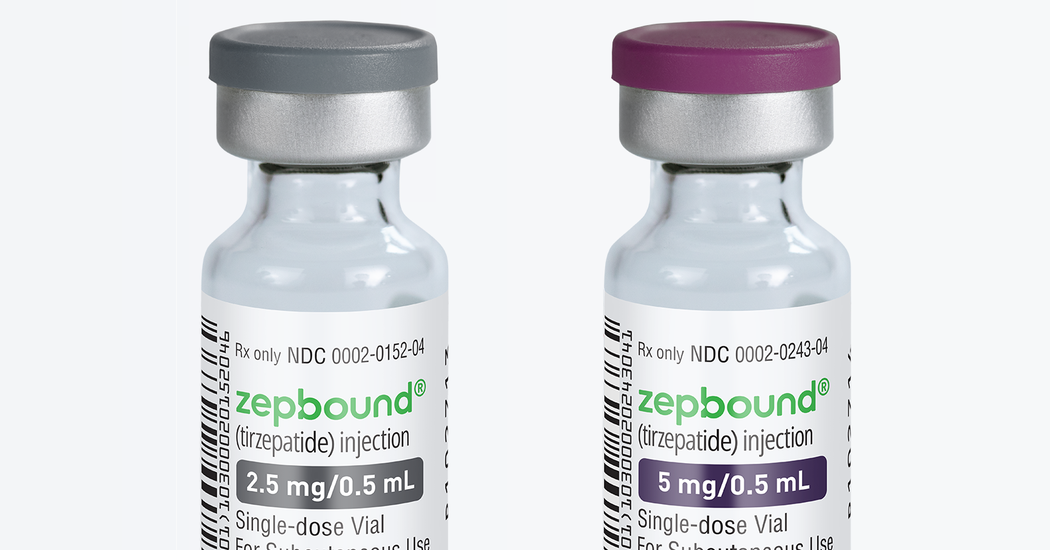Eli Lilly will now sell cheaper vials of Zepbound, presenting a direct challenge to telehealth companies that offer compounded versions of the medication.
With high demand for drugs like Ozempic, and a limited supply, a novel marketplace has emerged to cater to customers who can’t access them. Dozens of telehealth companies offer online prescriptions for cheaper, compounded versions of these medications. These alternative drugs come in vials, with syringes to draw out each dose, and cost hundreds of dollars less than brand-name options.
On Tuesday, Eli Lilly announced that it would start selling low doses of its weight-loss drug Zepbound in vials, too — at a far lower price than its pens, which come with pre-filled doses. These vials will be made available only through LillyDirect, a telehealth platform the company launched in January that connects patients with providers who can prescribe obesity drugs. Like compounded drugs prescribed by online startups, Zepbound vials can be delivered right to patients’ doors.
The lower-cost offering could expand access for the many people whose insurance plans do not cover the powerful weight-loss medication, said Lindsay Allen, a health economist at Northwestern Medicine. As weight-loss drugs have grown in popularity, some insurers have restricted access to them or stopped covering them altogether, to get ballooning costs under control. Some estimates suggest that millions of patients have in turn sought out cheaper alternatives to these drugs from compounding pharmacies, which can make copycat versions of any medication the Food and Drug Administration lists as “in shortage.” That includes tirzepatide, the substance in Zepbound and the diabetes drug Mounjaro.
Lilly’s announcement also presents a highly unusual challenge to the many telehealth companies now offering weight-loss drugs, and underscores the threat they pose to Lilly’s hold on the market, Dr. Allen and other experts said.
“Maybe this is a signal to that space: ‘We will get this market share back from you, even if it means lower pricing,’” said Dr. Timothy Mackey, a professor at the University of California, San Diego who has studied the counterfeit weight-loss drug market.
The vials are significantly cheaper than Zepbound pens, which cost just over $1,000 a month without insurance. A month’s supply of the 2.5-milligram dose will cost $399, and a month’s worth of the five-milligram dose will cost $549. The vials may benefit people who don’t have insurance coverage for Zepbound, including those on Medicare, said Patrik Jonsson, executive vice president of Eli Lilly and Company.
